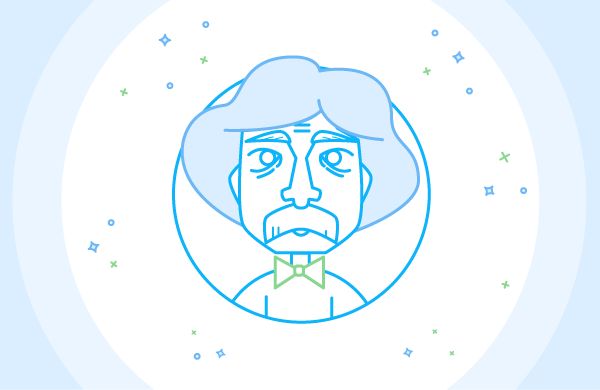Whether it’s destroying the candidacy of a politician such as Joe Biden, or it’s rearing its ugly head in the content of an admired but flawed TV drama such as “True Detective,” plagiarism is a curse and an insult when used in the creative arts. But is plagiarism really that bad? Certainly, plagiarism says something negative about a person who steals wholesale from another work and attempts to pass it as original thought, but too often, what critics call plagiarism is really just the appropriation of archetypes and long-held beliefs that have been circulating for many years. Legendary writer Mark Twain took on this subject when he defended Helen Keller from a charge of plagiarism.
Mark Twain thought that there was no such thing as plagiarism, because there was no such thing as originality.
Was he right? Let’s take a closer look at the plagiarism, originality and the creative process.
Is Anything Original?
Twain wrote that, ‘The kernel, the soul, let us go further and say the substance, the bulk, the actual and valuable material of all human utterances is plagiarism.” Twain believed that there was no such thing an original thought or an original idea, because every subject on Earth had been pored over, written about and analyzed. Does that mean that originality itself is a myth, and that no creative idea exists independent of another idea? The answer is yes and no. Yes, there are original ways to express thoughts, ideas, concepts and philosophies, but no, the actual subject upon which these thought, ideas, concepts and philosophies are based on, are not original. In a June 2012 article in The Guardian, once-celebrated German author Helene Hegemann, who published her debut novel at 17 to rapturous reviews, but was later outed for having lifted some sentences from another book, said pointedly:
There’s no such thing as originality, just authenticity.
Everything is Recycled
Twain further explained his belief about plagiarism by writing that nearly every idea was recycled from another idea, whether it was done on purpose, or through some collective unconscious process. Twain writes, “For substantially all ideas are second-hand, consciously and unconsciously drawn from a million outside sources, and daily use by the garnerer with a pride and satisfaction born of the superstition that he originated them; whereas there is not a rag of originality about them anywhere except the little discoloration they get from his mental and moral calibre and his temperament, and which is revealed in characteristics of phrasing.”
Twain brings up several good points, by citing the fact that even when artists plagiarize, they remain blissfully unaware that they have stolen thoughts and ideas, because they discount how much they are affected by external factors, even if those factors are not present when they sit down to create.
Plagiarism Defined
And yet, despite Twain’s assertion that originality does not exist, plagiarism isn’t merely a figment of an accuser’s imagination. While it’s true that most creative works are not original in subject matter, it’s still a moral crime to knowingly copy whole sections of another person’s work, and pass them off as your own. In other words, plagiarism can still be present even in a world where originality is impossible, because reasonable people understand that the manner in which a person creates a piece of work is protected by the law. For example, writers who hold Shakespeare in high esteem cannot in good conscience write the words, “We few, we happy few, we band of brothers,” without attributing these famous lines to the bard himself.
Plagiarism is an intentional copying or lifting of another person’s work and making people believe that those words or images originated in your mind.
And while there’s a fine line between originality and plagiarism, everyone understands copying, and at the heart of it, plagiarism is copying, no matter what Mark Twain thinks.
Does Plagiarism Matter?
In the digital age, plagiarism is of high concern, because of the number of content creators that dot the Internet. With website traffic increasingly driven by the number of unique visitors, content is at a premium, and many sites are stealing content and posting it as their own. Plagiarism matters because it’s about honesty and trust, which are the cornerstones of creative expression. Those who create works of art establish a contract with the audience that implies that the work is a product of the creator’s thoughts, feelings and emotions. The American Historical Association (AHA) distinguishes between plagiarism and copyright violation by defining plagiarism as a lapse in ethics, which may not be legally actionable, but is nonetheless morally questionable.
When legitimate questions arise about whether written work is plagiarized, using a plagiarism detection service may be the most effective way to obtain peace of mind. Because even an ‘authentic’ piece of work may have borrowed its authenticity from a better-read, more skilled practitioner of the written word.




